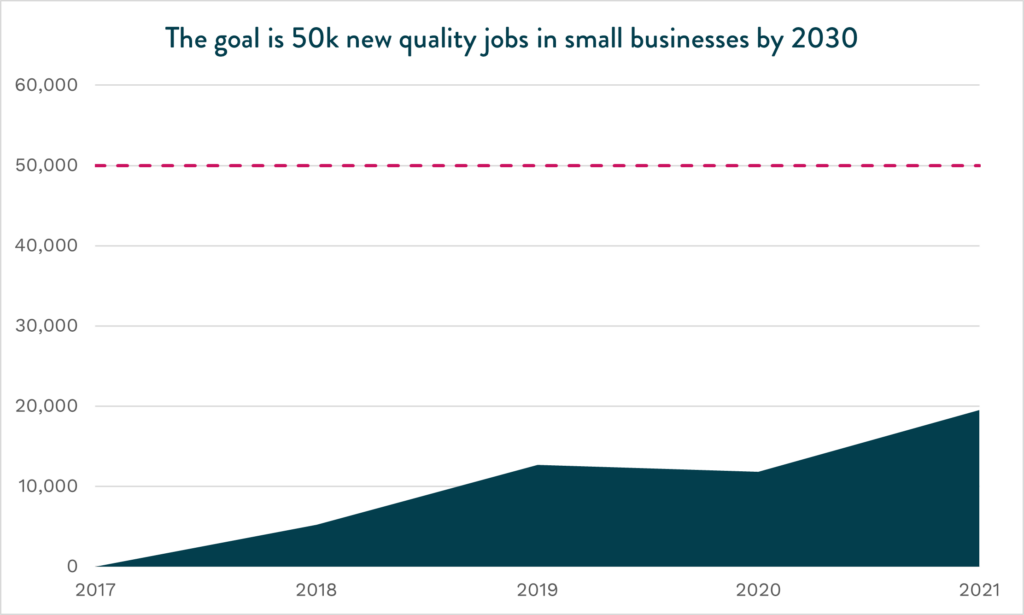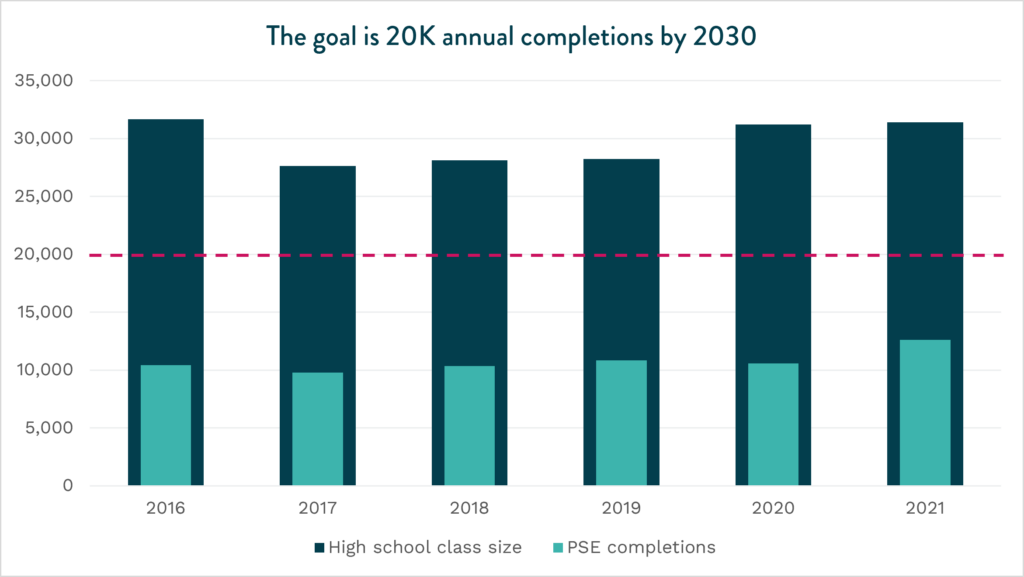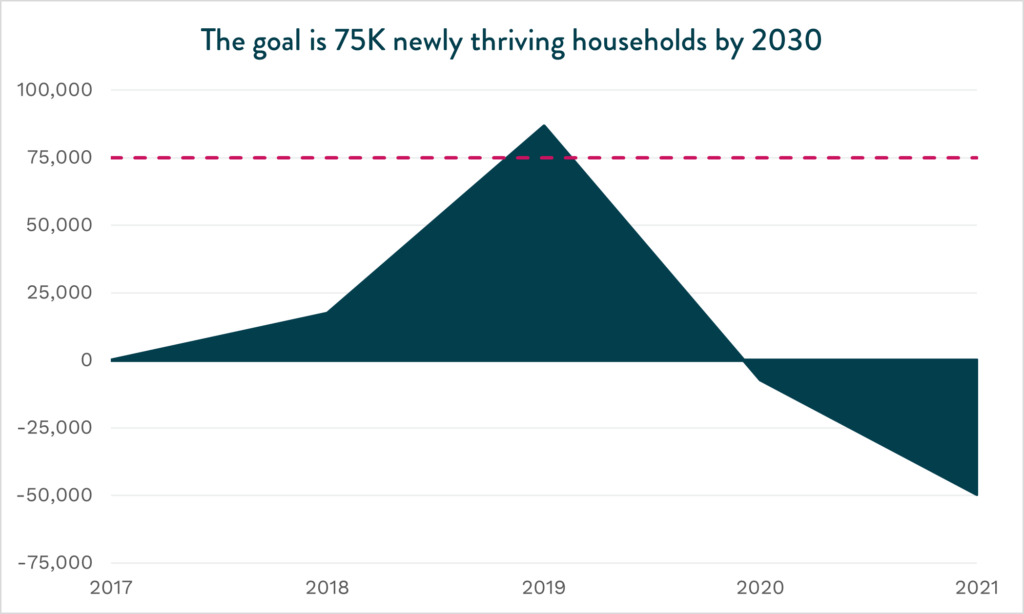World Trade Center San Diego and 150+ voting audience award $25K for international expansion
World Trade Center San Diego (WTCSD)—home of the region’s Export Small Business Development Center—named Aquacycl, which provides industrial wastewater treatment as a service to reduce costs and environmental impact, as the winner of the MetroConnect export accelerator program, now in its seventh year. Made possible through a grant from JPMorgan Chase & Co., Booz Allen Hamilton, and Deloitte, Aquacycl will use the $25,000 award to expand its presence in Europe and Mexico with its patented BETT system and micro-aeration solutions.
“In a volatile time for global trade, the results of MetroConnect’s seventh cohort are impressive and proof of the importance of international expansion for small- and mid-sized companies,” said Lucas Coleman, director of WTCSD.
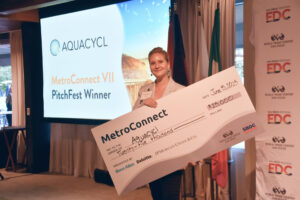
“Our Grand Prize winner Aquacycl embodies the strength of San Diego’s innovation economy, leveraging our excellence in clean technology on an international stage. Whether it’s streamlining customs processes, identifying, and securing reliable distributors, or cultivating leads in India, Turkey, and the UK amid economic uncertainty, we know that connectivity to international markets grows jobs and business resilience here at home.”
Escondido-based Aquacycl beat out three other finalists in MetroConnect VII, Epitope Diagnostics, Sunday Golf, and Surf Loch. The grand prize-winning company was decided via real-time audience vote during the Grand Prize PitchFest event June 5 at The Alexandria. Prior to this, a committee of senior international business leaders in San Diego helped the WTCSD team nominate these top performers, out of the initial 15-company cohort.
 ABOUT THE PROGRAM
ABOUT THE PROGRAM
In seven years, MetroConnect has helped 110 local, small and mid-sized businesses generate a net increase of $106 million in international sales, 552 international contracts, and 28 overseas facilities. Cohort companies have seen on average 66 percent export growth and 45 percent revenue growth. This international growth has coincided with 357 new hires here in the San Diego region.
Each cohort year, WTCSD selects 15 export-ready small businesses to receive $5,000 export grants, access to executive workshops, translation software, travel perks with international airlines flying out of SAN, and a chance to win a $25,000 grand prize to aid in further international market expansion. Applications for year eight of the MetroConnect program are now open through August 1, 2025. Interested small- and medium-sized companies that are looking to pursue international sales as a near-term priority or already exporting its goods or services may apply here.
GLOBAL CONNECTION IN CHANGING TIMES
Changes at the federal level have drastically shifted the rhetoric around global trade, but the truth remains. According to The World Bank, countries that trade internationally enjoy more economic growth, are more innovative and productive, and can provide more opportunities to citizens. San Diego is no exception—regional small businesses that export tend to have a larger and more diversified customer base, pick up best practices from global competitors, build up economies of scale, and ultimately pay their employees more. Access to international customers and markets is essential in helping San Diego boost resilience, as small businesses employ nearly 60 percent of San Diegans.
”We’re incredibly honored to be named this year’s MetroConnect Grand Prize Winner,” said Orianna Bretschger, CEO and Founder at Aquacycl. “The program has been instrumental in accelerating our international growth strategy, helping us expand into new markets while navigating complex export logistics and regulations. This recognition validates the critical role water reuse and decentralized wastewater solutions play in building a more sustainable future.”
“For over a decade, JPMorgan Chase and MetroConnect have partnered to help San Diego businesses grow globally and innovate boldly,” said Aaron Ryan, Managing Director for San Diego Middle Market Banking at program underwriter JPMorgan Chase. “We’re living in a new era of uncertainty, and navigating complex global markets takes the right support. San Diego’s businesses are rising to the challenge, and we’re proud to help them seize opportunities on the world stage.”
WTCSD hosted its MetroConnect Grand Prize PitchFest on June 5, with remarks by Nikia Clarke, Executive Director, WTCSD; Mayor Todd Gloria, City of San Diego; Andy Laats and Chad DiNenna, Co-founders, Nixon; and program underwriter Michael Monroe, Principal, Director of Data Science, Booz Allen, among others.
WTCSD maintains year-round support for global expansion through its Export Specialty Small Business Development Center and international trade missions.
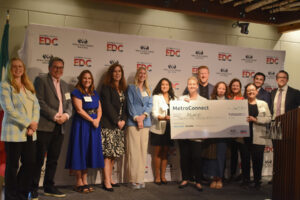 ABOUT THE PROGRAM
ABOUT THE PROGRAM






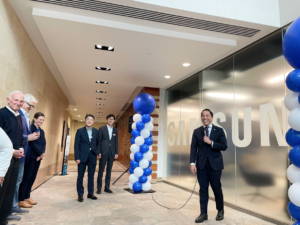
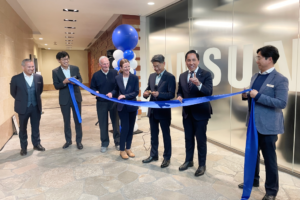 Samsung Semiconductor has had offices in San Diego since 2010, with an R&D center focused on SOC, modem systems, RF systems, multimedia, AI, and commercialization. The company employs more than 200 employees in San Diego with plans for additional growth.
Samsung Semiconductor has had offices in San Diego since 2010, with an R&D center focused on SOC, modem systems, RF systems, multimedia, AI, and commercialization. The company employs more than 200 employees in San Diego with plans for additional growth.